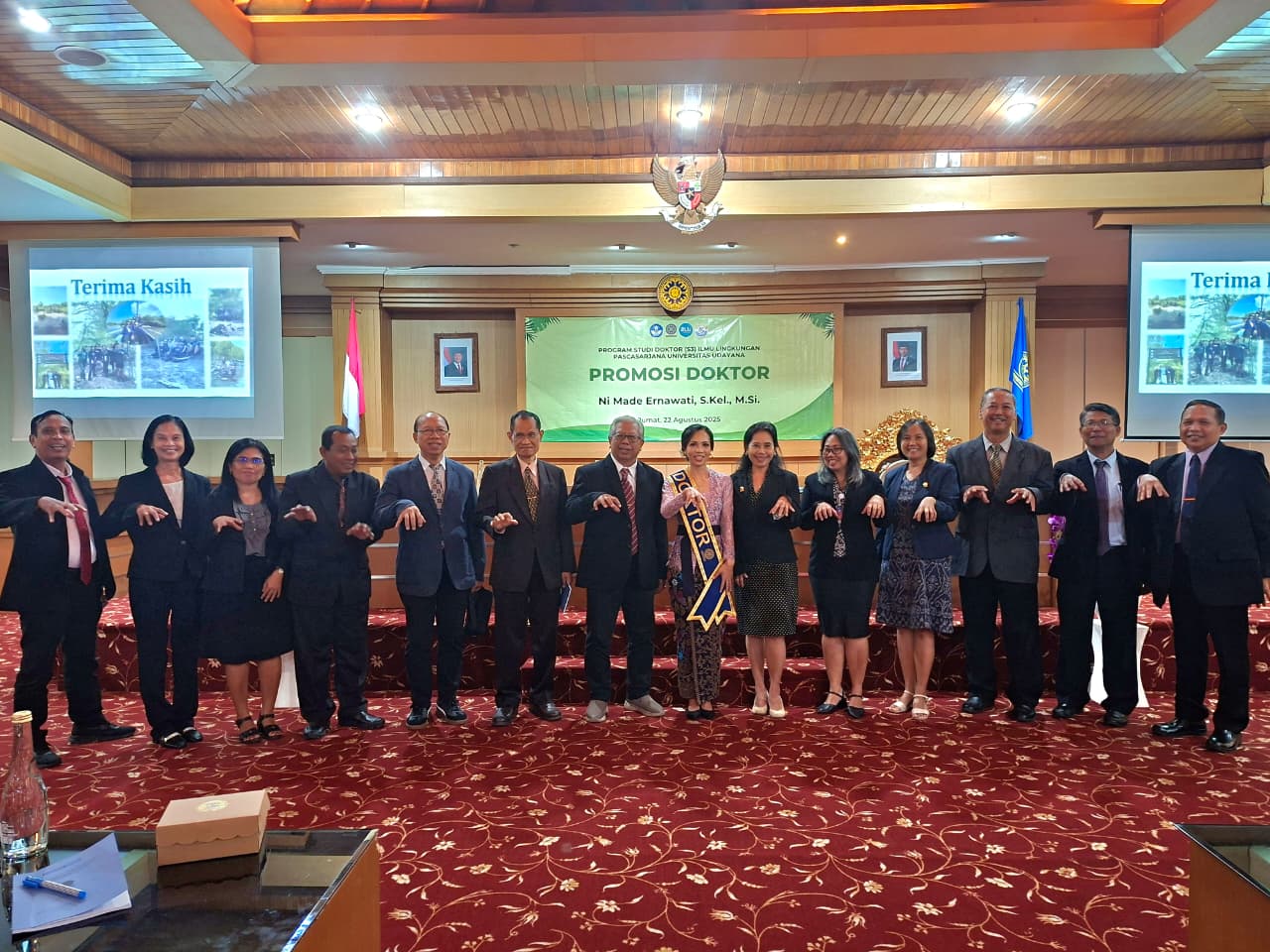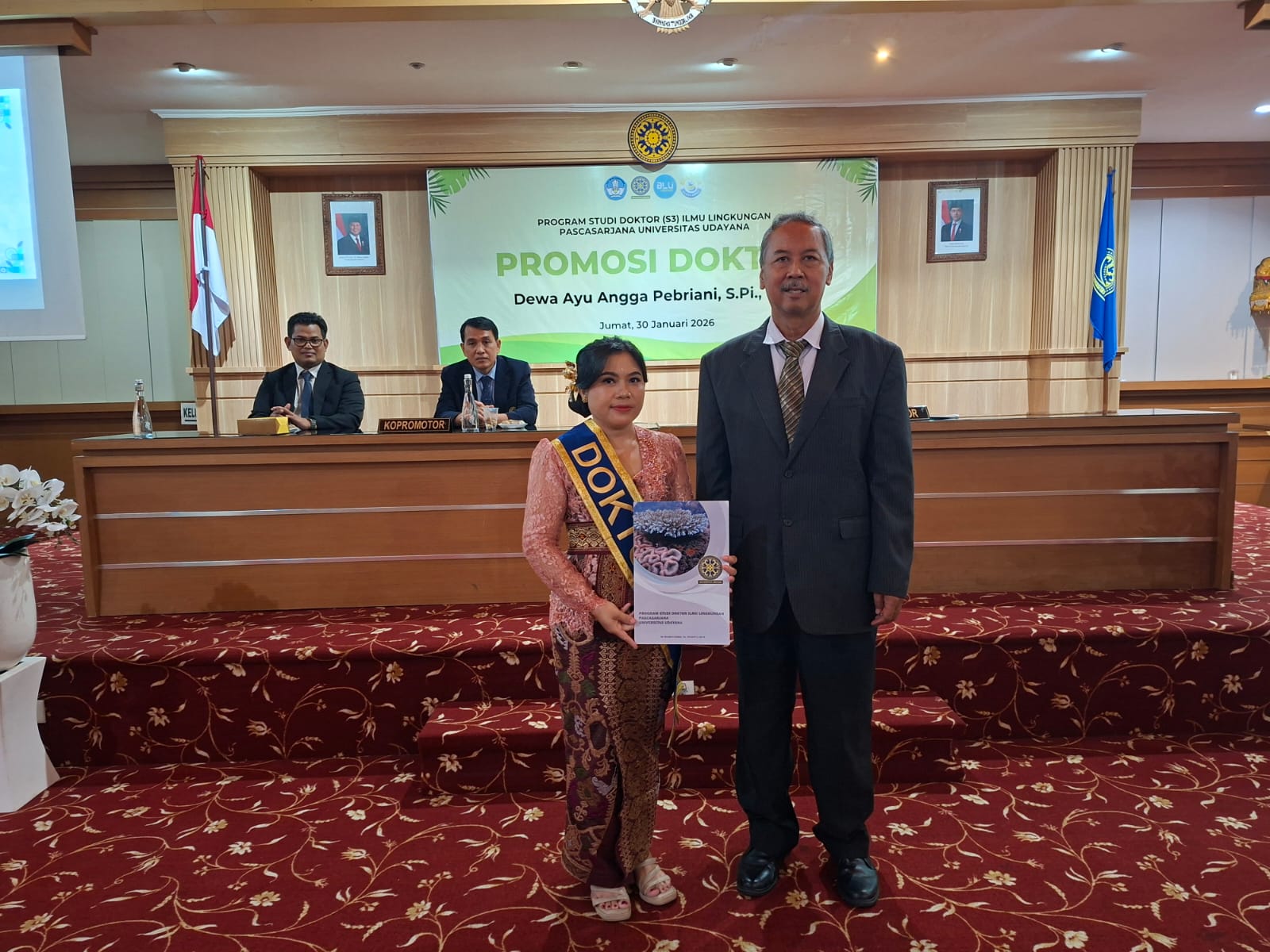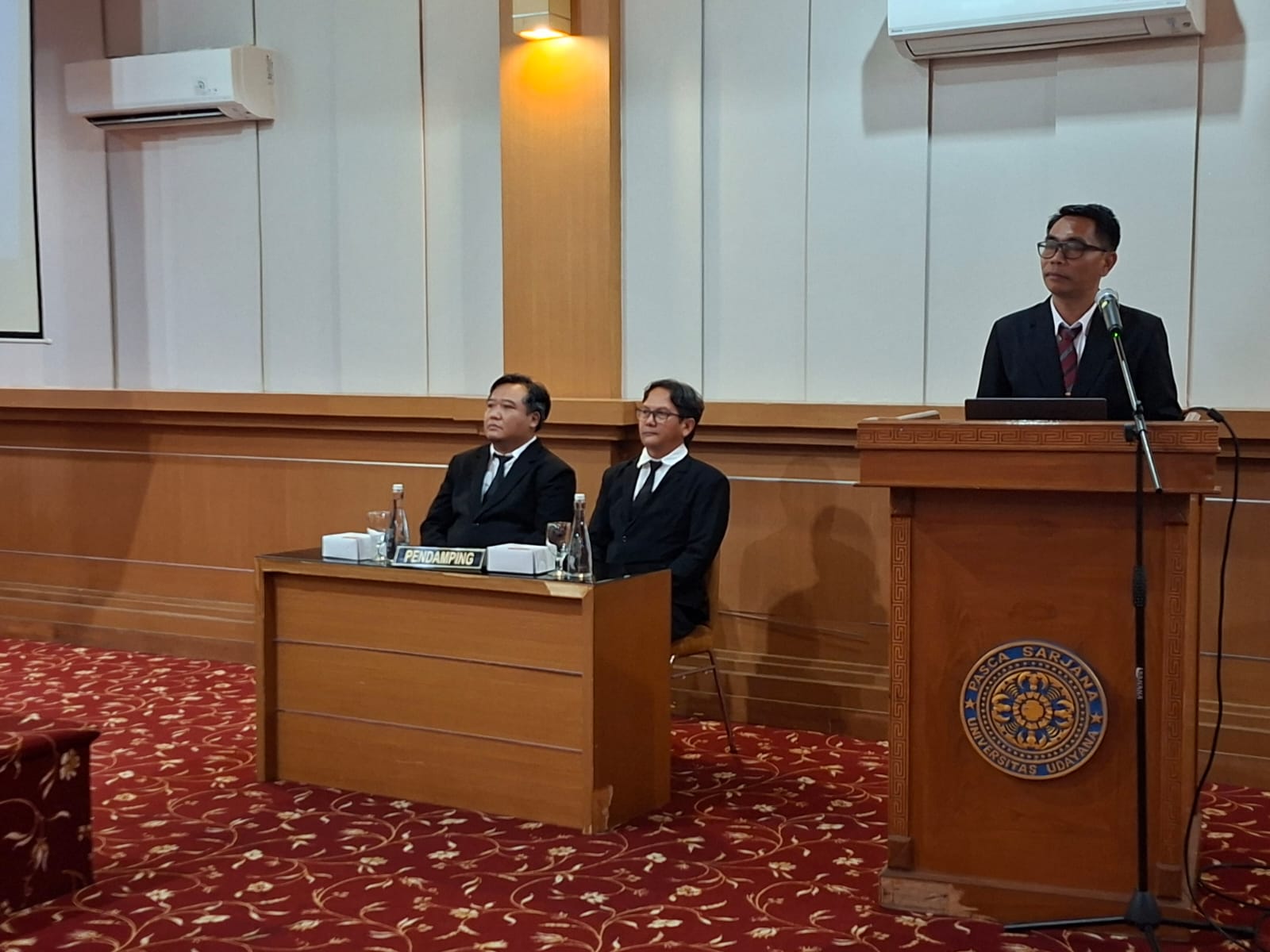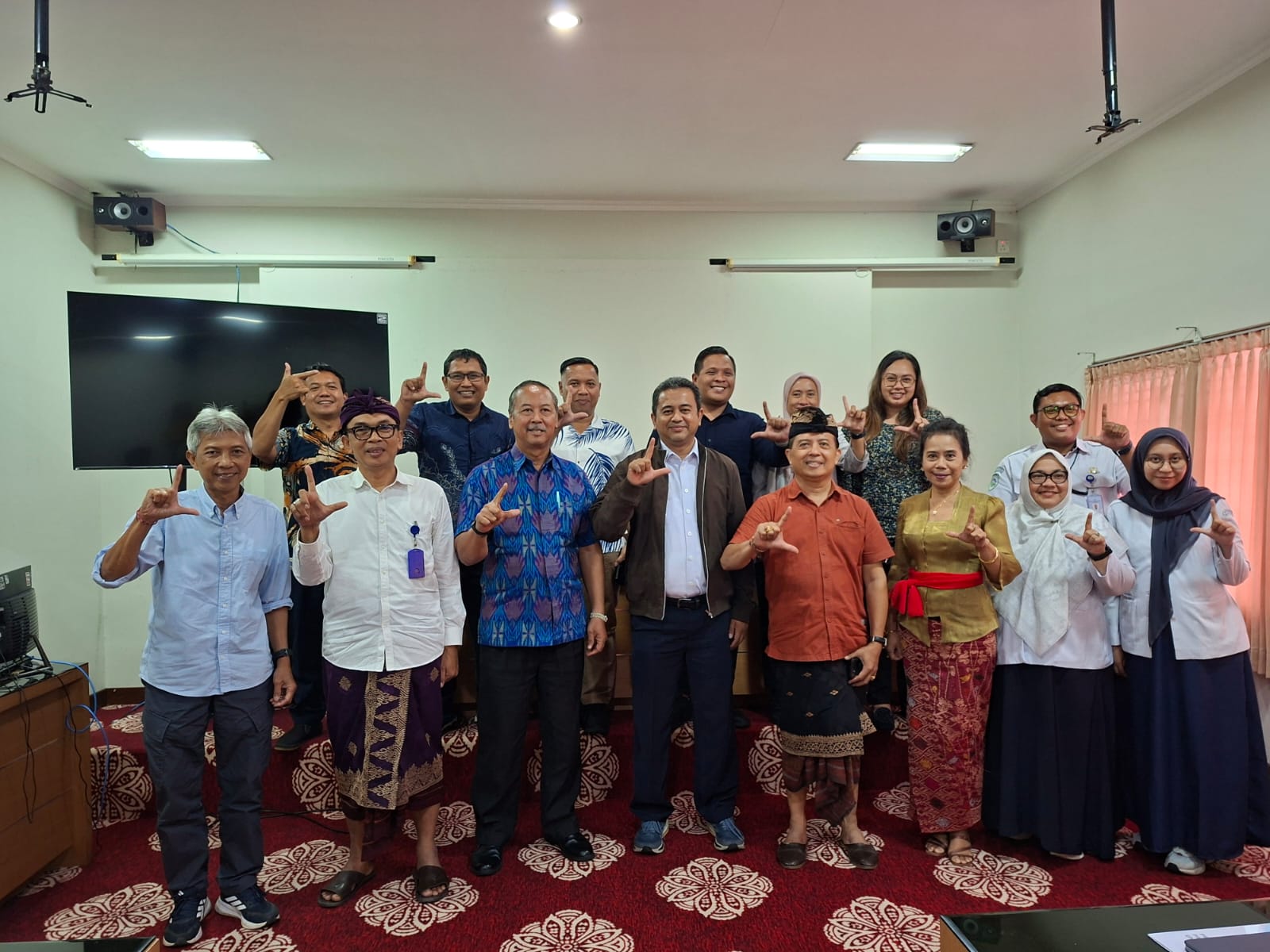Discovering a New Mangrove Health Index Formula, Erna Earns Doctorate Degree University General
Denpasar, Friday (August 22, 2025), at the Auditorium Hall of the Postgraduate Building of Udayana University, the Doctoral Program in Environmental Science (PDIL) of the Postgraduate School of Udayana University (Unud) held the Second Stage Final Exam (Open Defense) with doctoral candidate Ni Made Ernawati, S.Kel., M.Si. Erna, a woman born in the remote village of Yeh Sumbul, Jembrana, successfully defended her dissertation titled “Development of an Ecologically-Based Mangrove Health Index to Support Conservation in Benoa Bay and Perancak Estuary, Bali” before the examiners and academic guests. The chair of the examination was the Coordinator of the PDIL Postgraduate Program at Unud, Prof. I Wayan Arthana, MS., PhD., with nine examiners: Prof. Ir. Ida Ayu Astarini, M.Sc. Ph.D., Prof. Dr. Ir. I Wayan Suarna, MS., Abd. Rahman As-syakur, SP, MSi, PhD., Prof. Ir. Made Sudiana Mahendra, MAppSc, PhD., Prof. Dr. Ir. I Made Sudarma, MS., Prof. Dr. I Ketut Ginantra, S.Pd.M.Si., Prof. Dr. Ir. I Wayan Sandi Adnyana, MS., Dr. Drs. I Made Sara Wijana, M.Si., and Dr. Nyoman Dati Pertami, S.P., M.Si., as well as four academic guests, namely Ni Made Utami Dwipayanti, ST., M.BEnv., PhD., Dr. Ni Made Suartini, S.Si., M.Si., Dr. Ir. Made Ria Defiani, M.Sc (Hons)., and Dr. Ir. Dwi Budi Wiyanto, S. Kel., MP.
Starting her presentation, Erna said that regular monitoring of mangrove ecosystem health is an important step in assessing the effectiveness of conservation and rehabilitation efforts. She also added that this study aims to analyze the condition of the biotic and abiotic components of the mangrove ecosystem, analyze the current health condition of mangroves in Benoa Bay and the Perancak estuary, and develop a mangrove ecosystem health index based on simple ecological parameters to assess the health of the mangrove ecosystem. Based on the research findings, the dominant parameters selected using PCA for developing the mangrove ecosystem health index are tree height, tree density, canopy cover, organic carbon, electrical conductivity (EC), and soil pH. The resulting index has shown good initial validity for use in monitoring that classifies five categories of mangrove ecosystem health: very good (0.81–1.00), good (0.61–0.80), moderate (0.41–0.60), damaged (0.21–0.40), and severely damaged (0.00–0.20), concluded Erna in her presentation.
Meanwhile, Prof. Ir. Ida Ayu Astarini, M.Sc., Ph.D., as the promoter at the end of the open examination, delivered a speech and extended congratulations to the doctoral candidate, her family, and the Faculty of Marine Sciences and Fisheries at Udayana University for adding another faculty member with a doctoral degree. Prof. Dayu also commended the research conducted on the topic of mangroves, as this research aligns with the objectives of the Sustainable Development Goals (SDGs), particularly Climate Action, Life Below Water, and Life on Land. Prof. Dayu also noted that Erna is the only mangrove expert at Udayana University who has obtained a mangrove competency assessor certification. (DK)




UDAYANA UNIVERSITY